Protesters Take To The Streets In Santiago, Other Chilean Cities
Thousands of Chileans took to the streets on Tuesday in nationwide demonstrations tinged with violence, protesting against embattled President Sebastian Pinera and calling for economic and political change.
In Santiago alone, some 10,000 people gathered in the main Plaza Italia square, with some attempting to make their way to the heavily cordoned presidential palace and engaging in clashes with riot police.
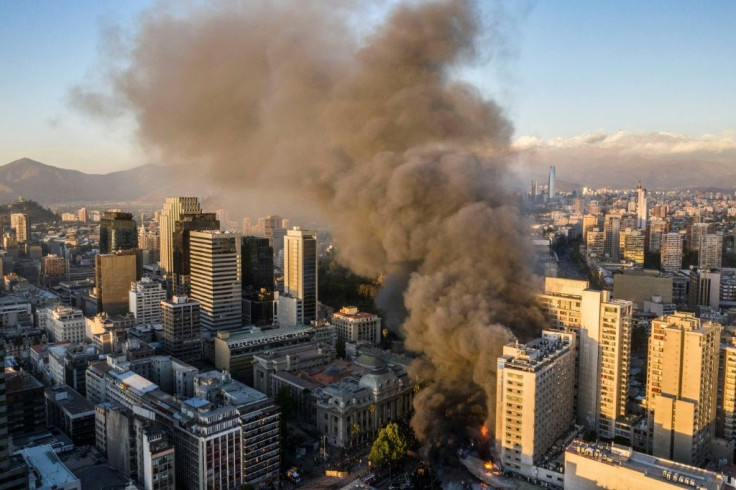
The skirmishing, which marked an 11th day of protests, saw water cannon and tear gas rounds from police as well as rock-throwing by demonstrators.
On Monday, violent clashes between demonstrators and security forces broke out only hours after Pinera announced a cabinet reshuffle.
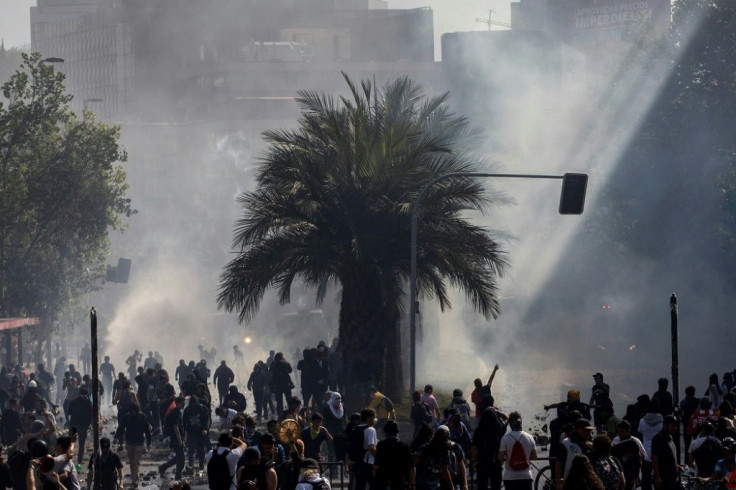
Shops were looted while one building was engulfed in flames, reminiscent of the violence that erupted in the early days of the protests, which began on October 18.
"It's not about people who want social justice, who want things to be better, they are people who want destruction, chaos," said Karla Rubilar, the government's new spokeswoman.
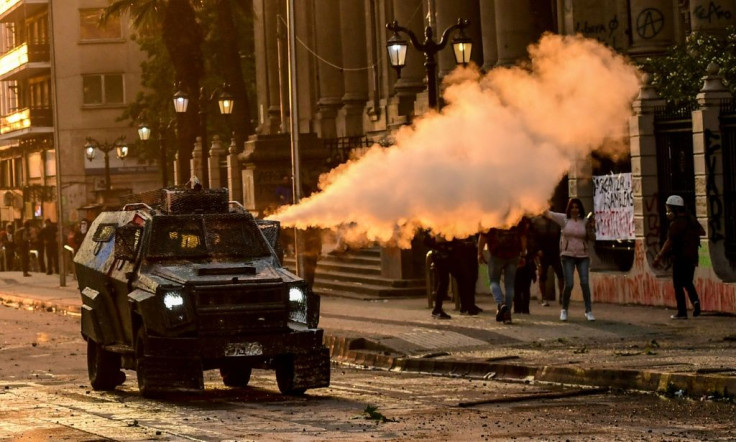
She stressed the contrast between the recent chaos and a peaceful protest held on Friday, which involved 1.2 million people, according to official figures.
Justice and Human Rights Minister Hernan Larrain said Tuesday that the government recognized there had been some situations involving law enforcement during the protests, in which at least 20 people have died, that "appear to be human rights violations."
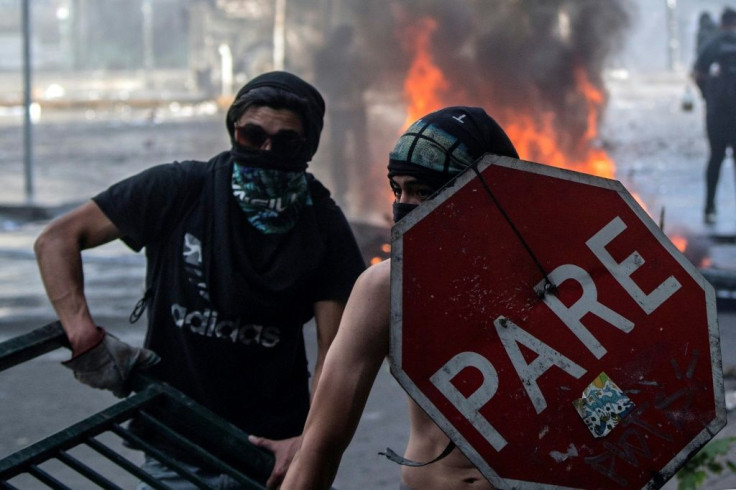
And Amnesty International's tactical campaign and crisis response chief Cesar Marin said the organization -- which is investigating more than 100 complaints of police abuse -- is especially concerned about charges of "sexual torture," reports of eye injuries and situations in which police or military action directly led to a death.
A mission led the United Nations High Commissioner on Human Rights Michelle Bachelet -- Chile's former president -- is expected later this week.
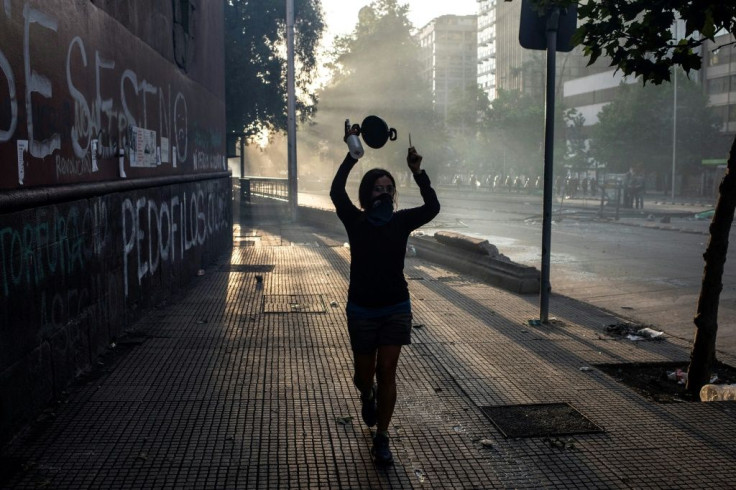
Other demonstrations took place in the cities of Valparaiso and Concepcion Tuesday, according to social media.
'Most worrying thing'
The latest rallies came as Chile's new Finance Minister Ignacio Briones said the country is facing a "very bad" end to Chile's economic year due to the protests.
Briones was only appointed to the role on Monday as Pinera reshuffled his cabinet for the third time since assuming office in March 2018.
"The most worrying thing is that the signals we've given out... will generate a decrease in investment," Briones told radio Cooperativa.
He said the "new reality" meant expected growth of 2.5 percent would have to be revised.
Protesters are demanding Pinera's resignation despite his making a raft of concessions including an increase in the minimum wage and pensions.
Meanwhile, public unrest shows no sign of abating.
"There are ventures and businesses completely ruined that are not going to be able to operate for the coming months," added Briones.
As the new finance minister, Briones has been tasked with finding the resources to fund Pinera's social package aimed at calming protesters.
The billionaire president last week announced measures to reduce health care costs, as well as the minimum wage subsidy and higher pensions.
© Copyright AFP 2024. All rights reserved.











